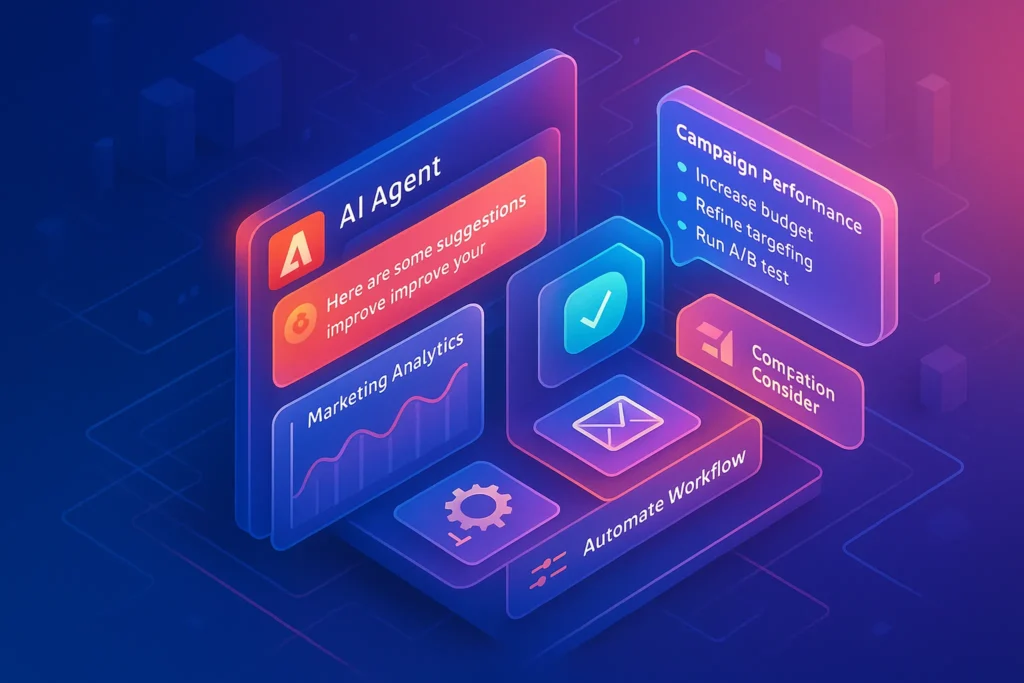🔒 Intro
Small and mid-sized businesses (SMBs) know they need AI to stay competitive. But there’s a catch: customer privacy and regulatory pressure are heavier than ever. GDPR fines can sink a startup, and consumer trust can evaporate overnight if data is mishandled. Many SMB founders assume that cutting-edge privacy-preserving techniques like federated learning or synthetic data are “Big Tech toys.” In reality, that’s no longer true. These approaches are becoming lightweight, affordable, and accessible.
This article breaks down how SMBs can harness federated learning and synthetic data to keep their AI strategies privacy-first. The goal: democratize privacy tech so businesses of every size can innovate responsibly.
💡 Nerd Tip: Think of privacy not as a regulatory burden, but as a competitive edge. Customers are more loyal to businesses that protect their data.
🧠 What & Why: Simplifying the Concepts
Federated Learning (FL) flips the traditional AI training model on its head. Instead of centralizing raw customer data on one server, the AI model travels to local devices, learns from that data, and only sends back the model updates. The result? Raw sensitive data—like transaction history, browsing behavior, or health records—never leaves its source.
Synthetic Data takes a different but equally powerful path. Instead of training AI models on real-world sensitive information, it generates artificial datasets that mimic the statistical properties of the real data. Think of it like creating a digital twin of your dataset: realistic enough for AI training, but completely stripped of personal identifiers.
For SMBs, this is huge. Privacy-preserving AI reduces compliance headaches, builds stronger customer trust, and minimizes the catastrophic risks of data breaches. The financial impact matters too. IBM’s 2024 Data Breach Report noted the average cost of a data breach for SMBs was $3.3M, an amount most can’t survive. The ability to train AI without exposing raw data can literally mean the difference between growth and collapse.
For deeper background on FL itself, check our guide on Federated Learning: The Future of AI Privacy and Edge Computing.
🛍️ Use Cases for SMBs
Privacy-preserving AI isn’t theoretical—it’s already driving practical results for small businesses.
Retail & E-Commerce
Online shops can use federated learning to analyze aggregate shopping behavior across devices without storing sensitive clickstreams or payment details. Instead of centralizing raw browsing logs, models train locally and return only pattern insights. This means personalized product recommendations without the risk of storing credit card data on vulnerable servers.
Healthcare SMBs
Clinics and small health tech startups face strict HIPAA and GDPR compliance. Federated learning lets them train AI diagnostic tools on sensitive patient data without ever moving that data outside the clinic. Meanwhile, synthetic datasets can help simulate patient histories for algorithm testing without exposing identities.
Finance & Fintech Startups
Detecting fraud often requires analyzing transaction data at scale. With federated learning, multiple financial institutions can collaborate to train stronger fraud detection models—without sharing individual transactions. This levels the playing field, letting small fintechs enjoy models as robust as big banks, without compromising privacy.
Marketing Agencies
SMBs working with customer campaigns can use synthetic datasets for A/B testing. Imagine running hundreds of simulations on a synthetic dataset of customer demographics. The AI outputs campaign insights while real PII never enters the system. It’s faster, safer, and compliant.
For agencies that already rely on tools like Consent Management Platforms or a lightweight CDP for SMBs, federated learning and synthetic data slot in seamlessly.
🛠️ Implementation Path: Step by Step
The road from curiosity to execution doesn’t have to be overwhelming. SMBs can start small and scale gradually:
-
Identify Sensitive Data
The first step is knowing what you’re protecting. Personally Identifiable Information (PII), financial records, or healthcare data all count as high-risk categories. Map out where this data lives—your CRM, payment system, or app logs. -
Choose Federated Learning Tools
Open-source frameworks like Flower or TensorFlow Federated lower the barrier dramatically. These tools allow SMBs to experiment with local model training without building infrastructure from scratch. -
Leverage Synthetic Data Tools
Platforms like Gretel.ai or Mostly AI generate synthetic datasets with intuitive interfaces. Many offer no-code workflows so even non-technical SMB teams can produce safe datasets for experimentation. -
Integrate with a Lightweight CDP
Customer Data Platforms (CDPs) are often seen as enterprise-grade, but SMB-friendly versions exist. Integrating federated learning models or synthetic datasets into your CDP ensures data-driven campaigns stay privacy-first. -
Test, Monitor & Iterate
Start with one use case—fraud detection, personalization, or campaign optimization. Train your model, deploy carefully, and monitor model drift. If synthetic data is lowering accuracy, blend it with anonymized real data.
💡 Nerd Tip: If you don’t have a technical team, begin with synthetic data. It’s easier to set up and doesn’t require complex infrastructure.
For automation-first SMBs, pairing these approaches with AI Automation strategies amplifies the impact—smarter models, safer compliance, and fewer technical overheads.
⚠️ Challenges & Fixes
Adopting federated learning and synthetic data isn’t without hurdles, but they can be overcome with smart choices.
Technical Complexity
Yes, federated learning can look intimidating. But open-source projects and cloud APIs dramatically reduce the barrier. Small teams can start with ready-made frameworks rather than custom engineering.
Customer Skepticism
Customers might wonder how their data is used. SMBs must invest in transparent communication—publishing privacy policies, highlighting federated learning usage, and emphasizing that raw data never leaves their systems. Trust grows when businesses explain not just what they collect, but how they protect it.
Synthetic Data Quality
Purely synthetic datasets sometimes lack the nuance of real-world data. The fix is hybridization: combining anonymized real data with synthetic examples. This balances accuracy with privacy.
💡 Nerd Tip: Start synthetic experiments on low-risk areas like campaign simulations. As accuracy improves, expand into higher-value models like churn prediction or fraud detection.
For extra resilience, some SMBs combine these methods with AI-Powered Cybersecurity, protecting not only customer data but also the AI models themselves from adversarial attacks.
🔐 Bring Privacy-Preserving AI to Your SMB
Ready to test federated learning or synthetic data without enterprise-level costs? Explore SMB-friendly tools like Gretel.ai, Mostly AI, Flower, and OpenMined to get started.
📊 ROI & Business Impact for SMBs
One of the biggest misconceptions is that privacy-preserving AI is a cost center. In reality, it can deliver measurable ROI for SMBs. By adopting federated learning and synthetic data, companies reduce compliance risks, increase customer trust, and cut data management costs.
Take GDPR fines as an example. The average GDPR penalty for mishandling data is €1.2M—an existential threat for small companies. Avoiding that risk alone is a financial win. Beyond compliance, privacy-first AI builds loyalty. A survey by Cisco in 2024 showed 76% of customers said they would switch brands if they felt their data wasn’t safe. SMBs that embrace federated learning for personalization can drive retention up by double digits.
Even operationally, synthetic data can cut research costs. A small marketing agency we tracked reduced the need for expensive focus group testing by generating high-quality synthetic datasets for campaign simulations, saving nearly 15% in quarterly research spend. These aren’t abstract benefits—they directly translate into resilience and growth.
⚖️ Regulatory Landscape Simplified
SMBs often feel overwhelmed by acronyms: GDPR, HIPAA, CCPA. The beauty of federated learning and synthetic data is that they directly align with these frameworks.
-
GDPR (Europe): Federated learning is compliant by design because raw data never leaves its source. Synthetic data is classified as non-personal information, reducing regulatory scope.
-
HIPAA (US healthcare): Synthetic data is a game-changer here. Clinics can test AI tools without risking Protected Health Information (PHI).
-
CCPA (California): Businesses must provide transparency about customer data usage. By adopting federated learning, SMBs can say with confidence: “Your data never leaves your device.”
💡 Nerd Tip: Transparency is half the compliance battle. If you clearly explain to customers that you use federated learning or synthetic data, you’re already signaling compliance and building trust.
🔐 Security Layer: Privacy Meets Protection
Privacy isn’t just about compliance—it’s also about security. Storing raw datasets in central servers creates a high-value target for attackers. In fact, 60% of SMBs hit by data breaches shut down within six months due to the financial fallout.
Federated learning lowers this risk drastically. Even if a hacker breaches the central server, they won’t find customer transaction logs or medical records—only anonymized model updates. Similarly, synthetic datasets are essentially worthless to cybercriminals because they don’t contain real identities.
When combined with AI-powered cybersecurity, SMBs can establish a double shield: one that protects data at rest and one that secures AI pipelines in motion.
🤝 Collaboration Between SMBs
Privacy-preserving AI unlocks a new possibility that traditional methods couldn’t: secure collaboration between SMBs.
Picture five local clinics, each with 2,000 patient records. Alone, their data isn’t enough to train a robust diagnostic model. But through federated learning, each clinic can train on its local data, share model updates—not raw records—and collectively build an AI diagnostic tool as strong as one trained by a major hospital chain.
The same applies to retail. Multiple small e-commerce shops can pool insights to train recommendation engines while never exchanging sensitive customer data. This is democratization in action: SMBs gaining the collective power of Big Tech without sacrificing privacy.
💡 Nerd Tip: Look for industry alliances or federated consortia. They’re emerging in finance, healthcare, and retail—and they let SMBs plug in at low cost.
📉 Risks of Ignoring Privacy-First AI
While it’s tempting to think “this is optional,” the risks of ignoring privacy-first AI are real and accelerating.
-
Financial Penalties: Regulatory fines are crippling for SMBs. Unlike enterprises, smaller firms rarely recover.
-
Trust Erosion: Once customers lose faith in your ability to protect their data, winning it back is nearly impossible.
-
Competitive Disadvantage: Rivals who adopt privacy-preserving AI will win customers, attract investors, and gain stronger partnerships.
-
Future Obsolescence: As privacy laws tighten worldwide, SMBs that delay adoption will find themselves scrambling to retrofit AI systems at much higher costs.
An e-commerce founder recently wrote on X: “We thought privacy-first AI was a ‘later’ problem. Then a single customer complaint turned into a compliance audit we weren’t ready for. We nearly lost the business.” Stories like this are a wake-up call: the cost of waiting is far higher than the cost of adopting early.
📬 Want More Smart AI Tips Like This?
Join our free newsletter and get weekly insights on AI tools, privacy-preserving methods, and SMB tech growth—delivered straight to your inbox. No fluff. Just value-packed lessons from NerdChips.
🔐 100% privacy. No spam. Just practical AI strategies for future-ready SMBs.
🧠 Nerd Verdict
SMBs no longer have to choose between privacy and innovation. Federated learning and synthetic data let small teams build smarter AI models without exposing sensitive information. These methods democratize advanced privacy tech, bringing tools once reserved for Big Tech into the hands of smaller players. The real win isn’t just compliance—it’s trust. Customers who see that privacy is prioritized are more likely to stay loyal, spend more, and recommend your brand.
In short: SMBs can grow intelligently, compliantly, and confidently in 2025.
❓ FAQ: Nerds Ask, We Answer
💬 Would You Bite?
If you were running an SMB today, would you start your privacy-preserving AI journey with federated learning, or would you test synthetic data first?
Crafted by NerdChips for SMBs that want to grow smarter while keeping customer trust at the core.



